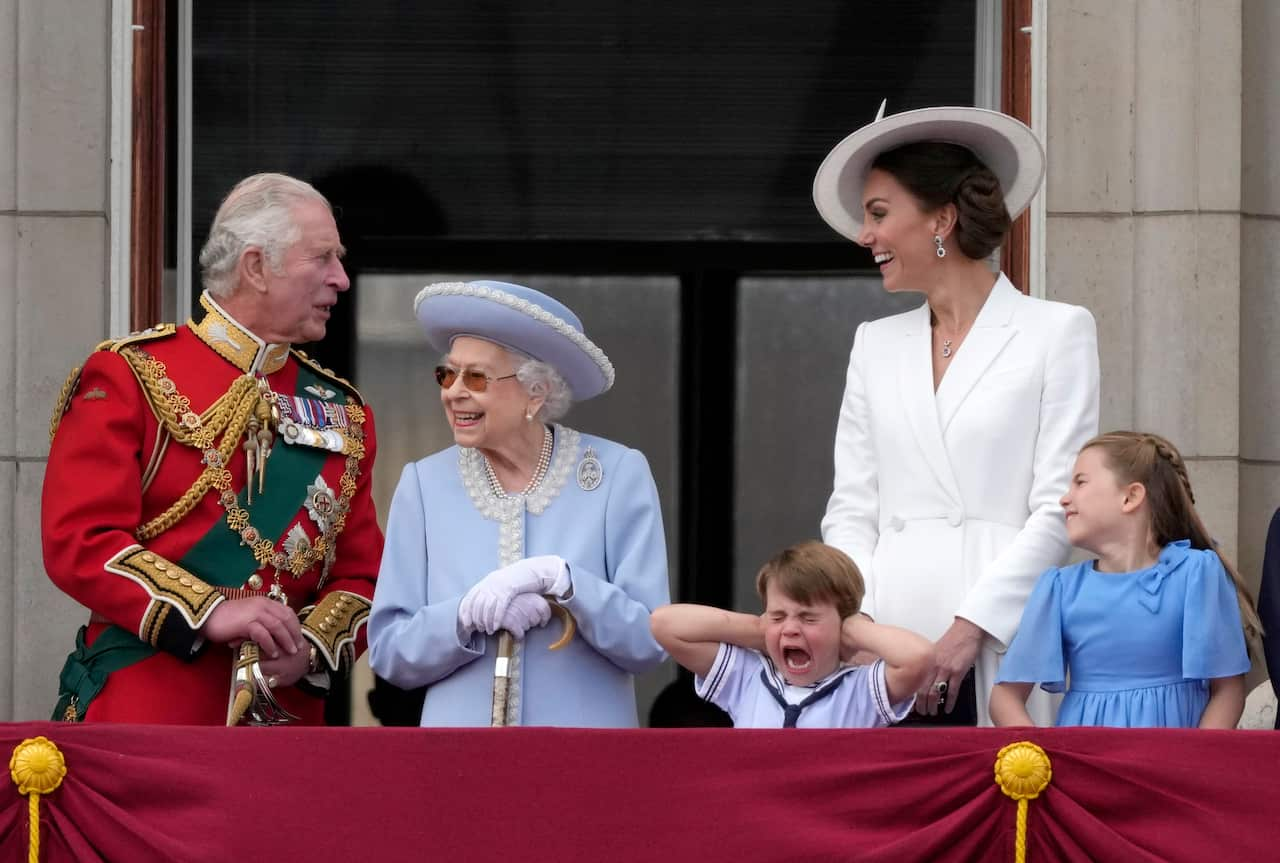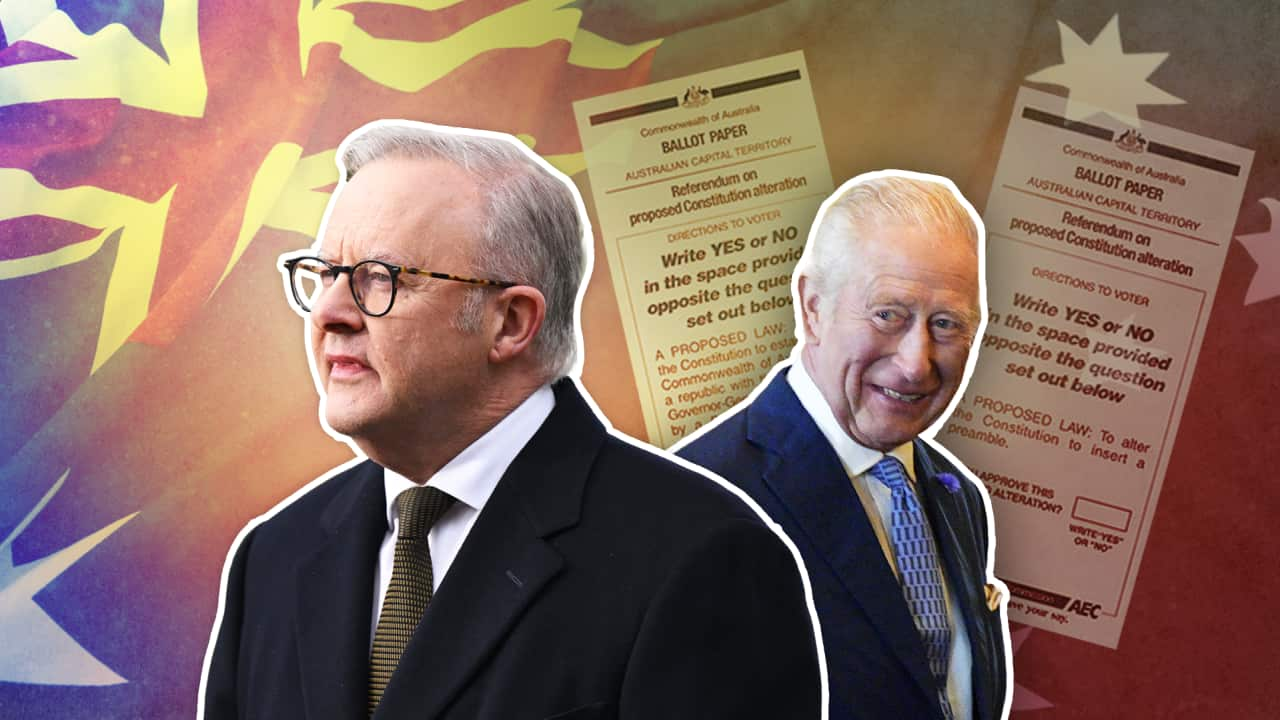Australians won't be voting in a republic referendum as long as Anthony Albanese remains prime minister, with experts explaining there's currently "no point" to the proposal.
Despite being a longtime advocate for an Australian republic, Albanese told SBS News he won't be pursuing the constitutional change.
"Look, I've always supported an Australian as our head of state. But the existing arrangements are in place," he said.
"We have, I think, a very respectful relationship and we have a monarch, His Majesty, who's passionate and interested about Australia, of world affairs, and the future."
He told Insiders, "I think I've made it clear that I wanted to hold one referendum while I was prime minister, and we did that", referring to the 2023 referendum to enshrine an Indigenous Voice to Parliament, which nearly 60 per cent of Australians rejected.
"We're concentrating on cost of living and on making a real, practical difference to people's lives," Albanese said.
The revelation is at odds with the Australian Labor Party's policy platform, which outlines "work toward establishing an Australian republic with an Australian head of state" as part of its objectives to modernise the constitution.
But experts agree Albanese has made the right call. And here's why.
'No political gain' in referendum
Former Labor adviser Bruce Hawker said there is "no point" in holding a referendum without bipartisan support.
He noted that of the 44 referendum questions to date, backing from both major parties was critical to the eight that resulted in constitutional change.
"So that means, effectively, that unless you do have that support, you're really just wasting taxpayers' money," Hawker told SBS News.
He suggests Labor should not have gone ahead with the Voice referendum once it became clear that the Coalition was going to oppose it.
While the Coalition backed the idea of constitutional recognition for Australia's First Nations people, it did not support doing this through the establishment of a Voice to Parliament.
"I think at that point it probably was worthwhile seriously considering abandoning the Voice referendum for that very reason, that once you lose bipartisan support, it's almost impossible to guarantee support by the public of Australia," Hawker said.
Albanese's personal advocacy for a republic also appeared to wane during a 2024 cabinet reshuffle, during which the government scrapped the portfolio of the country's first Assistant Minister for the Republic, Matt Thistlethwaite.
Paul Williams, a political scientist at Griffith University, agrees that the recent referendum took "a lot of personal bark" off Albanese, which has taken Labor "a long time to recover" from.
He said it's political capital the prime minister is not willing to squander, with "no political gain" from another referendum, especially amid longer-term aspirations.
"It's almost certain he'll win the next election in 2028 and he may be eyeing up a term after that to become one of the great, longest-serving Labor prime ministers. That's his plan," Williams told SBS News.
"He doesn't want to endanger any of that by losing any unnecessary political capital. He's got big enough problems to solve in terms of tax reform, in terms of housing reform and those sort of bread and butter issues."
Williams said the niche issue was not worth turning off voters, or worse, providing the Coalition with ammunition to claim that Albanese is focused on issues that don't matter.
Do voters support a republic?
A YouGov poll of 1,500 voters in November 2024, marking 25 years since the Republic referendum failed, found 59 per cent of Australians would reject the proposal.
It found that voting intention for a republic was 4 percentage points lower than in 1999, with 41 per cent of Australians supporting a republic.
Despite the data, Esther Anatolitis, co-chair of the Australian Republic Movement, said it was a surprising move, given Albanese's long-term advocacy for a republic, and insisted there was growing support.

"The Republic movement itself is growing. We've got people who are really, really interested in that everyday conversation about Australian democratic reform," Anatolitis told the ABC.
David Flint, national convener of Australians for a Constitutional Monarchy, said the call rightly "reflects a realism that there's no great interest or passion in Australia [for change]".
"Nobody's ever had somebody at the ministerial level, a minister of the crown, actually working to remove the crown. But [Albanese] had that for a while," Flint said, referring to Thistlethwaite's previous republic portfolio.
"I think [the prime minister's] realised that's a dead end, and he's got much more relevant things to do."
Williams notes the constitutional monarchy has seen an uptick in support since the accession of King Charles, as well as other events such as the death of Queen Elizabeth II and the wedding of Prince William and Princess Kate.
Concluding that there's clearly "no appetite for Australia to become a republic anytime soon", Williams said support is more likely for a referendum that impacts voters in a meaningful way.
"Will it improve my life? Will it get me a pay rise? Will it get me, give my children a house? Those are the sorts of questions a lot of Australians would ask," he said.
"And of course, the answer is no."
Hawker agrees that unless the republican movement can demonstrate how the lives of voters will change materially as a result of becoming a republic, it'll be a "long time before the Australian public is going to go down the path of supporting a referendum along those lines".
For the latest from SBS News, download our app and subscribe to our newsletter.

